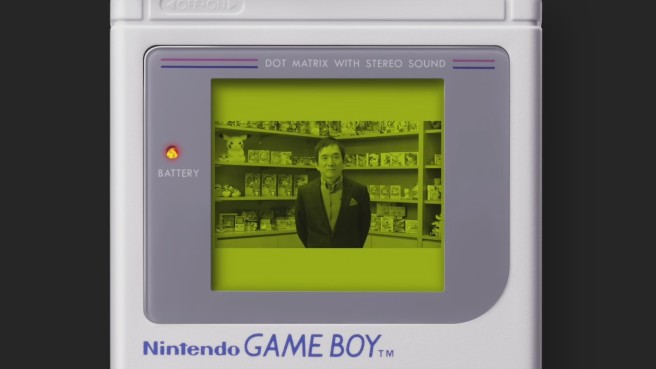Pokemon CEO on the series’ early days and rise in popularity, bringing it west, more
Passing through the wall of overseas expansion with creativity
Inside: Pokemon also became an exceptional hit overseas, didn’t it? It shouldn’t be an exaggeration to say that there shouldn’t have been an example of a game full of text becoming a hit.
Ishihara: The overseas version started with Mr. (Hiroshi) Yamauchi’s voice of authority. Of course, the atmosphere at that time was that [everyone thought] it would do poorly in America. Mr. (Satoru) Iwata and I talked between us, “If Yamauchi-san said to do it, then we have no other choices but to do it”. However, at that time, Game Freak was doing their best on the sequel Pokemon Gold and Silver, so I left the engineering aspect to Mr. Iwata. What’s great about him was that he said “Dear Game Freak, please focus on making Gold and Silver. I will localize Red and Green’s whole structure without hearing anything from you”. Of course we needed a lot new names for the Pokemon, cities, moves, and more in the creative side though.
Inside: There must have been some hardships in naming the Pokemon for overseas, right?
Ishihara: We were most troubled with the problem as to whether Pikachu should remain as Pikachu. For Japanese people, Pika comes from electricity and Chu stems from mouse, but outside Japan it would be meaningless and nonsense. Nonsense cannot be valued. People won’t be able to answer whether onomatopoeia they don’t understand the meaning of is good or bad. So we had no other options but to think about them one by one.
We made Pikachu [‘s name] the same all across the world. They may not know the meaning, but we secured the Pikachu trademark worldwide, so we decided to just go with Pikachu. But if everything was the same [as Japanese] it would be a total disarray of meaning, since Fushigidane’s name came from it carrying a mysterious (fushigi) seed (tane) on its back. We mixed Bulb – which can also mean Seed – with Saurus from Dinosaurs, and it became Bulbasaur. When we asked Americans just to make sure, they had the image of a reptile or amphibian carrying a bud on their back, so it was OK. For Hitokage, we mixed Charcoal and Salamander to become Charmander. Arbo is also difficult to understand, so we made it Ekans. But the latter is actually an anagram of Snake.
We don’t use regularity in determining the English names, but instead everyone had to think their best and use their creativity for each word one by one. By that way, each Pokemon will feel livelier. While we’re taking in puns from each country, mysterious creatures are inserted into them. By having a huge percentage of the 151 Pokemon having different names from Japanese, the anime dubbing also became multiple times harder though… But thanks to [people] putting their best in giving names, it contributed largely to getting accepted by the world.
Inside: Did the popularity rise in the same way as Japan for overseas?
Ishihara: The overseas expansion started more than two years later than Japan, so the method changed drastically. Since there were two years, during that time we aired the anime, and also a movie, and we also released a card game (TCG). So when we just landed in the US, we already had various weapons in our possession. For our strategy in the US we first aired the anime, broadening the world of Pokemon, letting them experience deeper with the game, and provide a more strategic play with the card game. In Japan it of course started with the game, so we had to change the [promotional] ordering. Two years passed between Mr. Ishihara’s authoritative words and the actual release, and between that time we created many kinds of weapons, so we were able to launch it well. If we did this at the same time at Japan it might had failed. So I think we also had good timing and luck.
Inside: Could the main factor of overseas success be that Pokemon pursues a ubiquitous theme in humanity?
Ishihara: It could be so. Pokemon draws a familiar theme – like raising pets, or bugs growing into pupa and then to a butterfly. Such experiences may also have a part in common humanity. If this were a world with swords and magic, preferences will branch away, and it also inserts a violence factor which would raise the age rating. Depending on one’s point of view, some may see Pokemon as straight extension of Japanese monsters and western folklore creatures. But I think they could be even closer existences, with things anyone can experience in actual livelihood, like collecting insects, raising a dog in home, fishing in rivers, etc.
